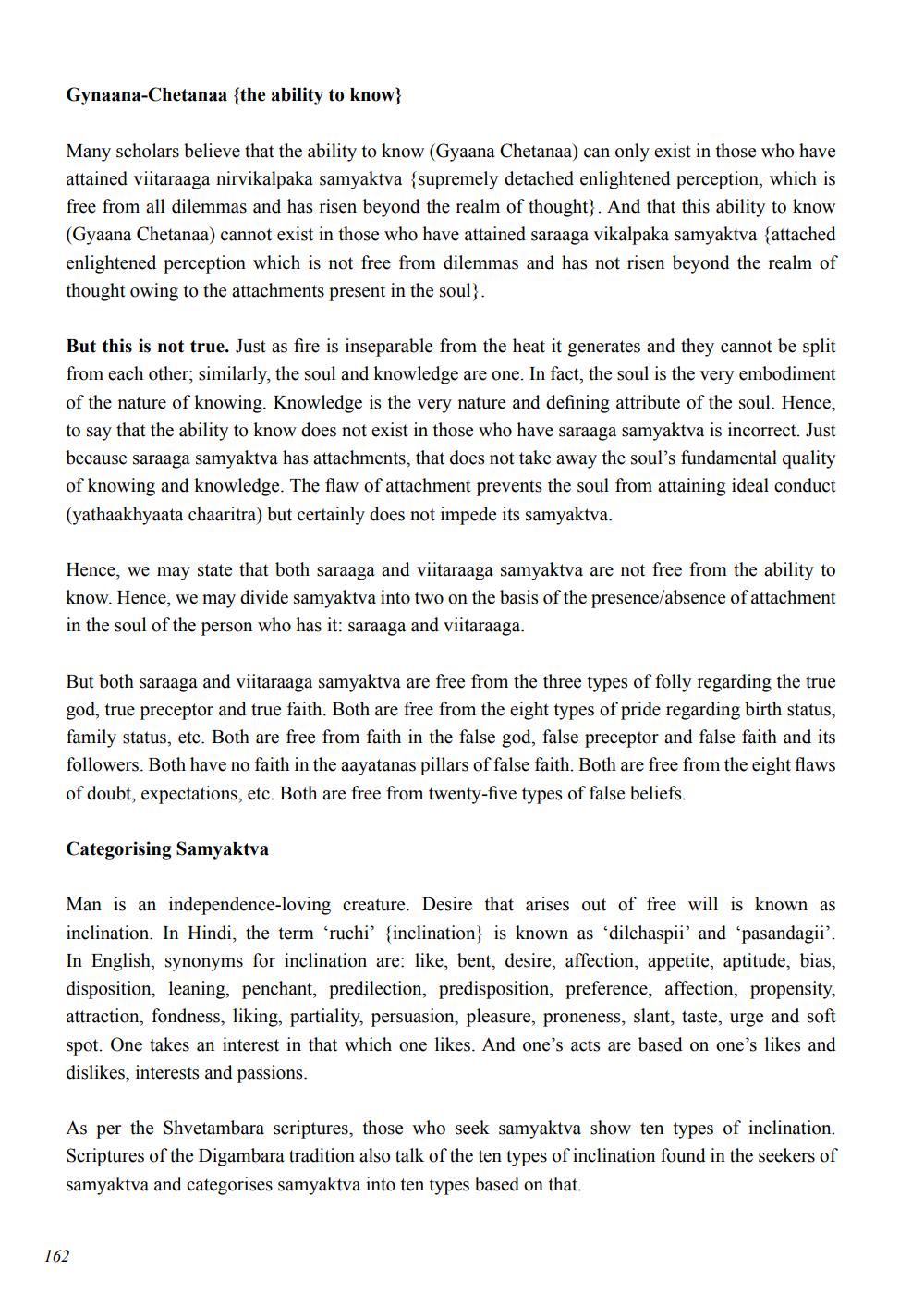________________
Gynaana-Chetanaa {the ability to know
Many scholars believe that the ability to know (Gyaana Chetanaa) can only exist in those who have attained viitaraaga nirvikalpaka samyaktva {supremely detached enlightened perception, which is free from all dilemmas and has risen beyond the realm of thought}. And that this ability to know (Gyaana Chetanaa) cannot exist in those who have attained saraaga vikalpaka samyaktva (attached enlightened perception which is not free from dilemmas and has not risen beyond the realm of thought owing to the attachments present in the soul.
But this is not true. Just as fire is inseparable from the heat it generates and they cannot be split from each other, similarly, the soul and knowledge are one. In fact, the soul is the very embodiment of the nature of knowing. Knowledge is the very nature and defining attribute of the soul. Hence, to say that the ability to know does not exist in those who have saraaga samyaktva is incorrect. Just because saraaga samyaktva has attachments, that does not take away the soul's fundamental quality of knowing and knowledge. The flaw of attachment prevents the soul from attaining ideal conduct (yathaakhyaata chaaritra) but certainly does not impede its samyaktva.
Hence, we may state that both saraaga and viitaraaga samyaktva are not free from the ability to know. Hence, we may divide samyaktva into two on the basis of the presence/absence of attachment in the soul of the person who has it: saraaga and viitaraaga.
But both saraaga and viitaraaga samyaktva are free from the three types of folly regarding the true god, true preceptor and true faith. Both are free from the eight types of pride regarding birth status, family status, etc. Both are free from faith in the false god, false preceptor and false faith and its followers. Both have no faith in the aayatanas pillars of false faith. Both are free from the eight flaws of doubt, expectations, etc. Both are free from twenty-five types of false beliefs.
Categorising Samyaktva
Man is an independence-loving creature. Desire that arises out of free will is known as inclination. In Hindi, the term “ruchi' {inclination is known as 'dilchaspii' and 'pasandagii'. In English, synonyms for inclination are: like, bent, desire, affection, appetite, aptitude, bias, disposition, leaning, penchant, predilection, predisposition, preference, affection, propensity, attraction, fondness, liking, partiality, persuasion, pleasure, proneness, slant, taste, urge and soft spot. One takes an interest in that which one likes. And one's acts are based on one's likes and dislikes, interests and passions.
As per the Shvetambara scriptures, those who seek samyaktva show ten types of inclination. Scriptures of the Digambara tradition also talk of the ten types of inclination found in the seekers of samyaktva and categorises samyaktva into ten types based on that.
162




